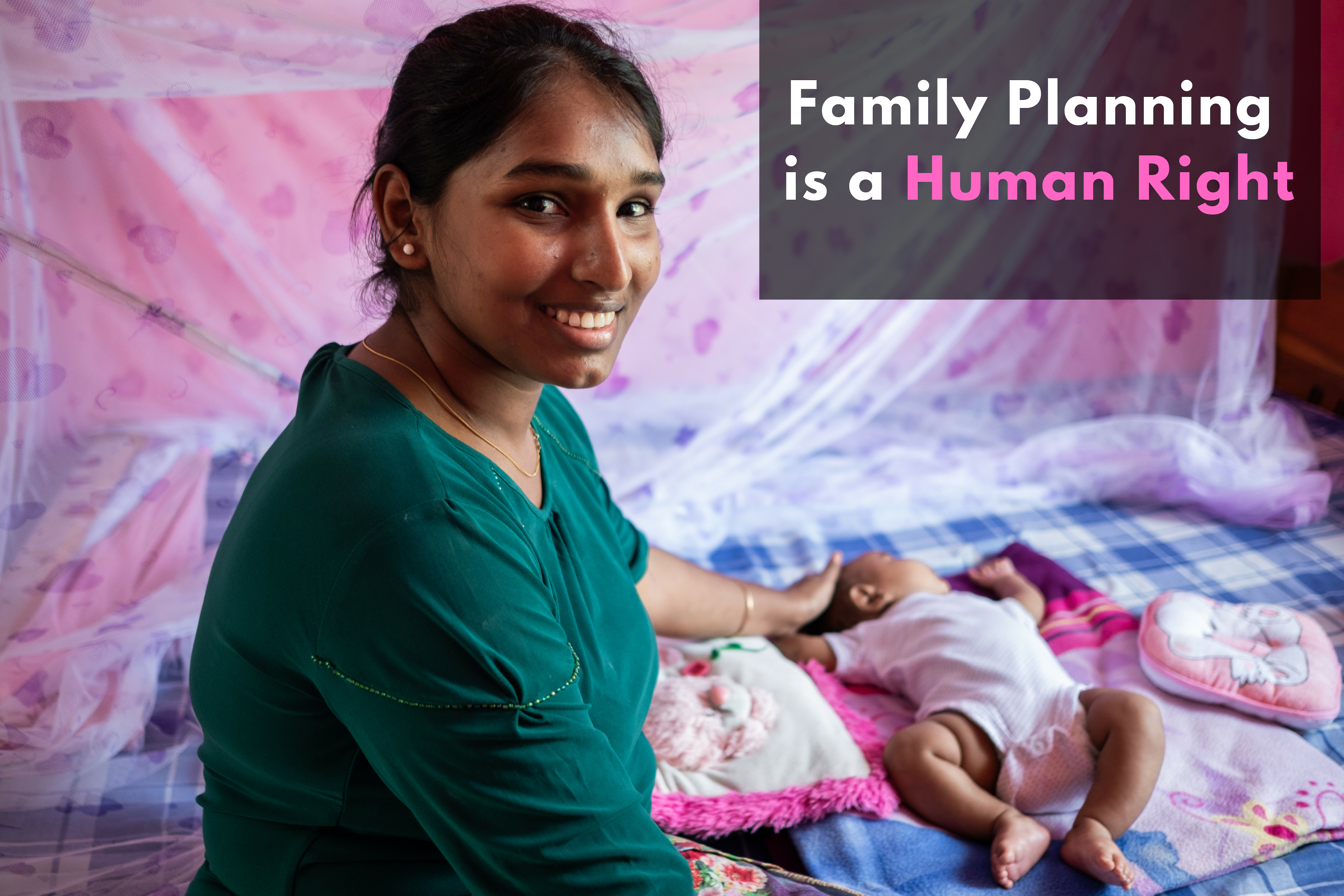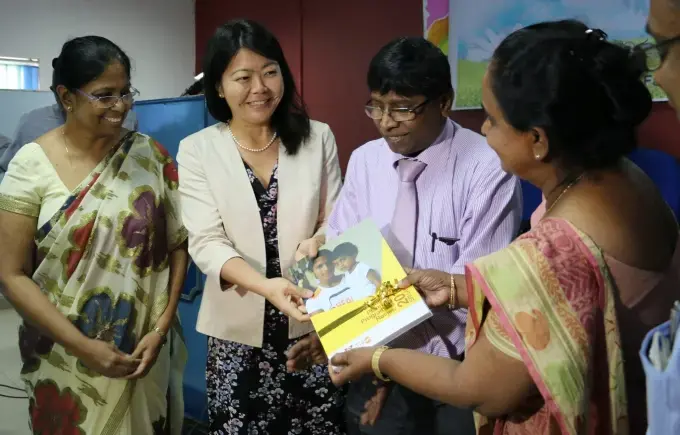COLOMBO, Sri Lanka (22 Mar 2019): When couples are empowered to plan whether and when to have children, it enables their families, including women and girls, to reach their full potential. FP2020 is a global partnership that strives to make this a reality, by bringing together governments, civil society, multilateral organizations, donors, the private sector, and the research and development community to invest in rights-based family planning.
The Executive Director of FP2020, Ms. Beth Schlacter arrived in Sri Lanka and addressed the media at a press briefing, urging the need to ensure that all pregnancies are planned pregnancies. She stated, “Family planning saves lives. In 2018, as a result of modern contraceptive use, in 69 FP2020 focused countries, 119 million unintended pregnancies were prevented, 20 million unsafe abortions were averted, and 137 thousand maternal deaths were prevented”.
Also speaking at the press briefing, Dr. Sanjeewa Godakanda of the Family Health Bureau, Ministry of Health, stated,“Sri Lanka has made significant strides in providing family planning services over the years and has remarkable indicators in comparison with other countries in the region. However, a stagnation of performance is observed in the recent past, which may have an adverse impact not only on the health status, but on overall social wellbeing as well. Hence, there is a need to reach those furthest behind and provide women and adolescents with accurate information on sexual and reproductive health”.
Despite, Sri Lanka’s significant achievements, the Demographic and Health Survey (2016) highlights that 35% of married women in Sri Lanka do not use contraception and the unmet need for family planning is at 7.3%. Further, the adolescent fertility rate is at 30 per 1000, which has been stagnant over the past few decades. Teenage pregnancies is also at a rate of 4.6%, with subnational disparities of 5-8%.
As a result, it is estimated that 650 unsafe abortions take place daily in Sri Lanka, with no recent evidence of a suggestive decline, and 80% are estimated to be accessed by married women above the age of 30. The 2015 National Guidelines on Post-abortion Care highlights that unsafe abortions make up 10-13% of maternal deaths in Sri Lanka, making it the second most common cause of maternal mortality in the country. Despite legal restrictions, unsafe abortions continue to risk the lives of many women and girls.
Prevention is key to reducing unsafe abortions. Women who want to avoid pregnancy should have access to safe and effective family planning methods. This means that they have the power to make decisions about their own bodies and the knowledge and access to quality sexual and reproductive health services and supplies to manage their fertility. This point was also highlighted by Dr. Janaki Vidanapathirana, President of the College of Community Physicians.
Emphasizing on the importance of rights and choices, Representative of the United Nations Population Fund (UNFPA) in Sri Lanka, Ms. Ritsu Nacken, noted, “Family planning is a human right. Individuals have the right and the choice to freely decide if, when and how often to have children. Increasing access to modern contraceptives will prevent unplanned pregnancies and avert unsafe abortions. As the United Nation’s sexual and reproductive health agency, UNFPA strives to deliver a world where every pregnancy is wanted, and we will continue to support the Ministry of Health to end unmet need for family planning in Sri Lanka”.
UNFPA is a key partner in the FP2020 global partnership to empower women and girls by investing in rights-based family planning, and works with the Government of Sri Lanka to strengthen the capacity of health care providers to deliver quality family planning services, and in conducting research on subfertility towards developing a national subfertility package. In addition, UNFPA helps increase the capacity of pre-and-in service teachers to deliver comprehensive sexuality education in schools.
**ENDS**




